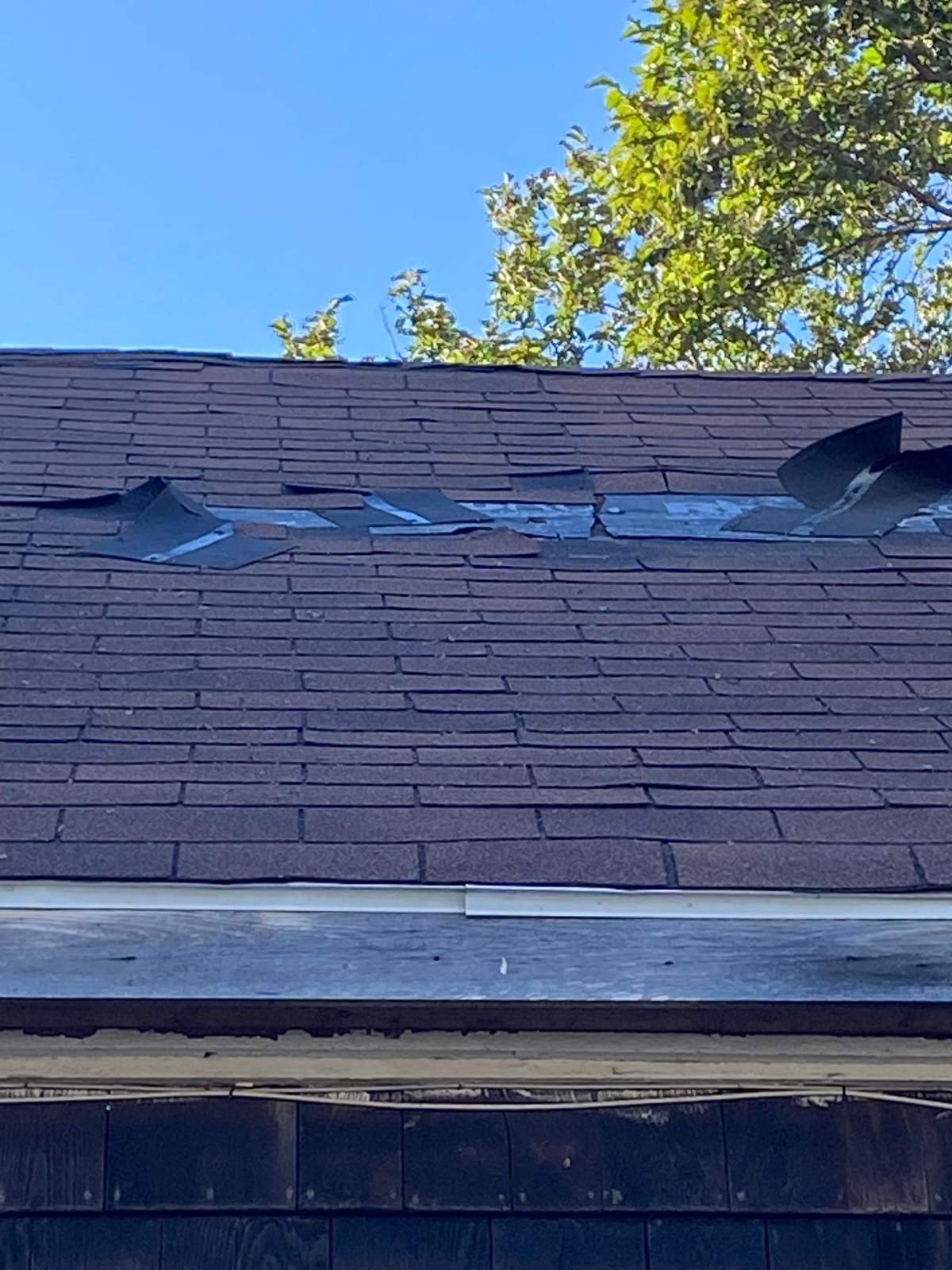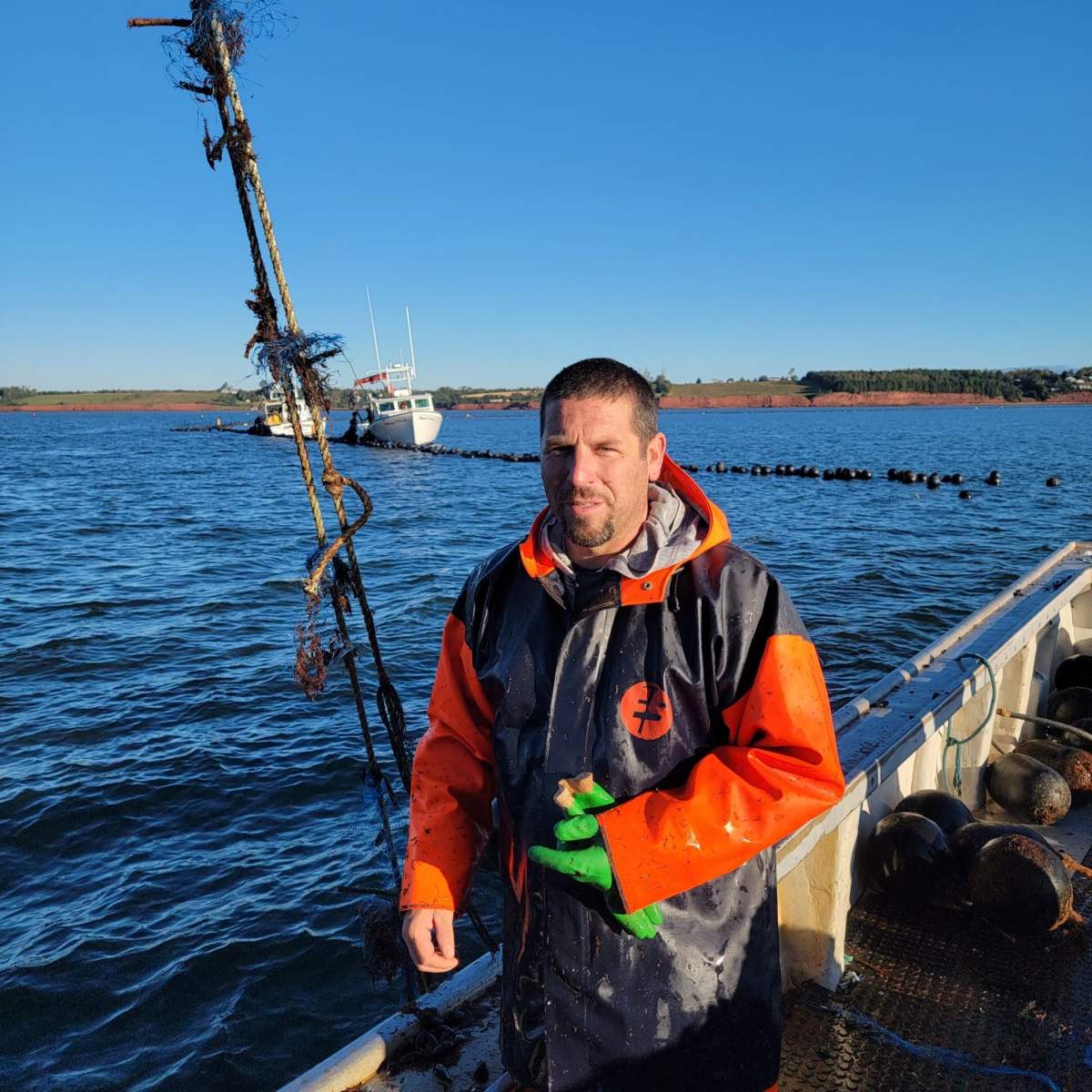Joan Peters has spent the last six days living in the dark.

She, like many Prince Edward Islanders, knew hurricane Fiona was approaching and prepared as well as she could. She got extra bread and milk – all she could afford as a low-income senior.
But the provincially-owned senior’s complex in Charlottetown in which she lives has remained without power since the storm ended on Saturday, and all her perishables have gone bad.
She’s been surviving on nothing but Corn Flakes, crackers and canned milk.
On Tuesday, a friend finally stopped by to check on her.
“For a while there, I felt like I was forgotten,” she said, her eyes welling up with tears.
Peters has health issues that limit her mobility. And without electricity, she hasn’t been able to call anyone for help.
Her landline is internet-based and a cellphone she recently acquired lost its charge days ago.
“I have no phone whatsoever. So if I’d have had a stroke coming on or a heart attack or something, I wouldn’t have been able to call for help.”
P.E.I. was hit hard by Fiona when it arrived as a post-tropical storm late Friday and into Saturday, with winds gusts that reached 100-150 km/h, more than 80 millimeters of rain and storm surges that have erased whole areas of coastline from the island province.

About half of P.E.I.’s households and businesses were still without power Thursday, due to significant damage from the storm that took down power lines, pulled giant trees from their roots and pushed them into streets and into homes.
The province’s power utility, Maritime Electric, said Thursday its system may not be fully restored until Sunday or Monday. Many individual homes may still be without power after that due to more localized damage, spokesperson Kim Griffin said during a briefing.
Adeline Smith, another resident of Peters’ 72-unit senior’s complex in Charlottetown, said Wednesday she is deeply concerned about the many seniors with disabilities in the complex.
When the storm first knocked out power to their building, residents were unable to leave without being locked out – the front door of the building can only be accessed by key-cards that require power to operate. It took a whole day before someone finally came and gave everyone physical keys to the door.
Before the keys arrived, Smith says she heard residents who had left for supplies banging on the glass front doors, begging to be let back in.
Since then, they have had to contend with more than just a lack of food, power and hot water. Anyone who leaves their unit must walk down long dark hallways with no emergency lights. There are also no lights in the stairwell – the only means of access between the first and second floors.

Get breaking National news
“This is what we have to live with,” Smith said, pointing down the darkened corridor to her unit on the second storey.
“I helped people around the other night, (on the) top floor and down below. I have three chronic diseases. I just got through cancer treatment… it’s sad to see this,” she said of the lack of support.

Thousands of residents of Charlottetown have been grappling with Fiona’s devastating aftermath, including challenges finding available contractors to help patch up damage to their homes.
The blasting wind gusts ripped holes in the roof of Jake McAleer’s rental home on Park Street. He spent the first days after the storm trying to find help fixing the damage, to no avail. Then, a downpour on Tuesday evening brought a significant amount of water into the unit, which has now led to concerns about mould, since dehumidifiers can’t be used due to the ongoing power outage.
“It’s left me in a position, after discussing with my landlord, where I need to try and find a home desperately so that I can still have my son with me,” he said.
But finding anywhere to live, or even stay temporarily, has been almost impossible, McAleer said.
“Now I find myself in a position where I may be homeless.”
It’s not only individual residents and homeowners reeling from the devastation of the storm.
The province’s primary industries have been significantly affected, with farmers and fishermen dealing with dramatic crop and catch losses and infrastructure damage.
Logan Jewell, one of the owners of a dairy farm Meadowbank, says his cattle barn was destroyed by Fiona’s raging winds, which ripped the heavy tarps that cover the steel frame of the structure completely off, as well as taking down and “crumpling” rafters at the far end of the structure, Jewell said.
“When the third tarp was coming off it was just a frightening sound, that basically it was just being ripped off in the wind. There was steel flying through the air,” he said. “Really, it’s lucky nobody was out in it.”
Now most of his barn has been “pretty well destroyed” with just one area not left open to the elements, he said.
None of the farm’s 130 cows were hurt, but Jewell – like a number of other dairy farmers on the island – has had to find alternative farms to house his cattle due to the significant damage to his property.
Ryan Barrett says his family’s operation, Oceanbrae Farms, also had the roof ripped from its barn during the storm.
Now, they have to try to clean up significant debris and try to rebuild even as they try to ensure their cattle – now scattered at multiple farms – are being milked twice a day.
“It’s definitely a very stressful time,” he said.
“My father and my grandfather built a really award-winning herd of cows for a long time, they’ve sold genetics all around the world so it’s a stress, dropping off cows at other places and not being able to see them every day and look after them the way you want.”
Meanwhile, fishermen who work in P.E.I.’s lucrative mussel industry have also been particularly hard-hit.
Andrew Bryanton, who farms mussels in Nine Mile Creek, says Fiona washed his entire mussel crop – about 200 acres, equivalent to close to two million pounds of mussels – out to sea.
In his 23 years in the industry, Bryanton says he’s never experienced this level of loss.
Not only did he lose this year’s crop, but he also lost almost all his seed mussels for next year.
“It’s a substantial loss… it’s a tough one to swallow for sure,” he said.
Asked what this will mean for his business, he said the outlook is grim.
“It’ll probably end me,” he said.
“The whole of the mussel industry is gonna take a big blow, because from what I’m hearing, at least half to 75 per cent of the seed stock is gone.”
The provincial government on Tuesday announced a wage subsidy program for businesses who need to hire workers to help with cleanup and repairs. Seniors are also being offered financial relief, including grocery cards.
Premier Dennis King admitted the damage to P.E.I. and its economy was “bigger than we’ve ever been hit with before,” and has asked the federal government for more financial support.















Comments
Want to discuss? Please read our Commenting Policy first.